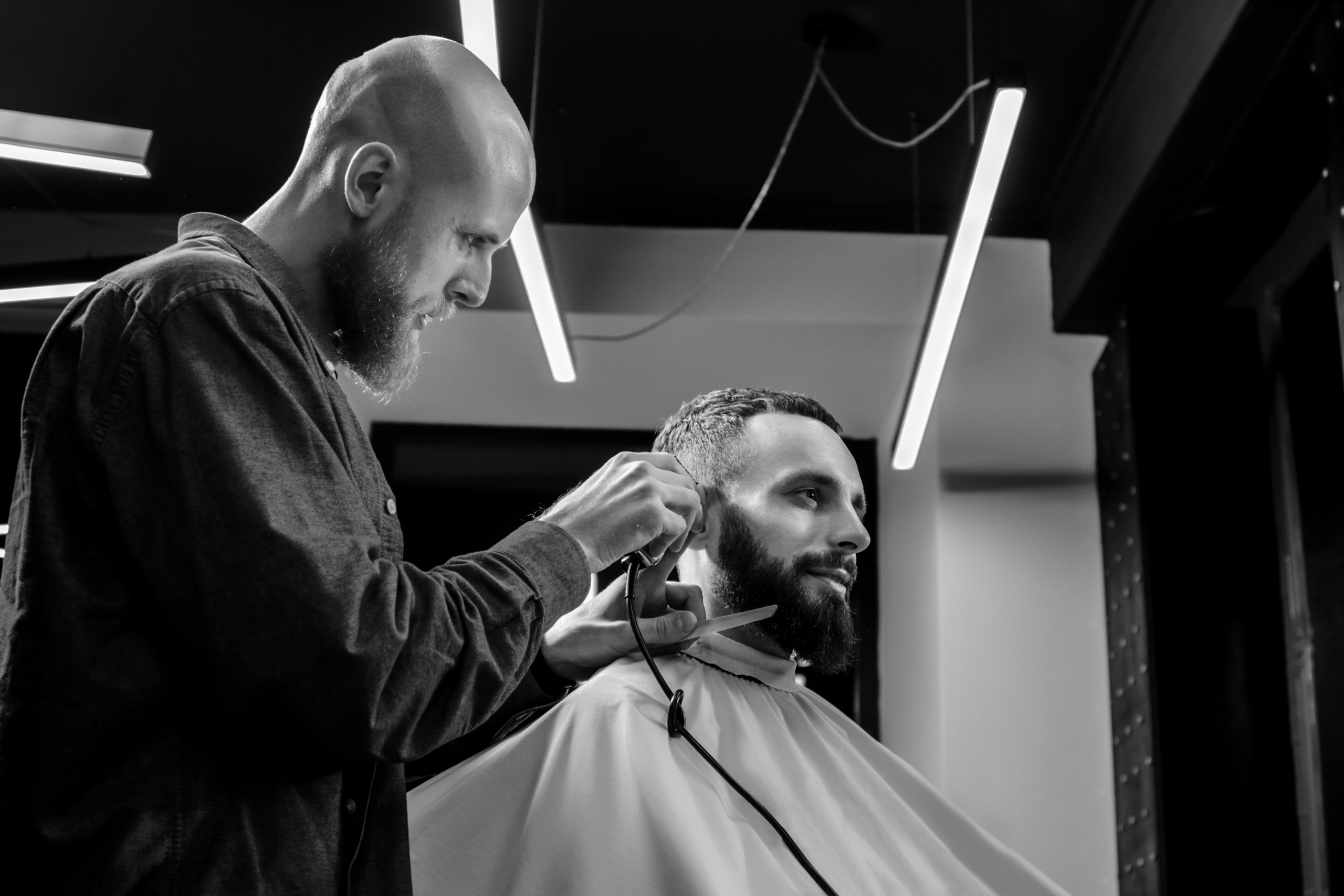Is a Fade Haircut Prohibited?
Hanafi FiqhShafi'i Fiqh
Answered by Shaykh Irshaad Sedick
Question
I have heard scholars saying that the origin of the karahiya of the Qaza‘ haircut is because it looked indecent. Or that the fade is not prohibited because the Prophet (may Allah bless him and give him peace) referred to a common practice where the Arabs shaved their kids’ heads in an ugly way to avoid the evil eye. Or that we should differ between shaving (حلق) and shortening (تقصير) the hair.
And is it permissible to see the skin of the head (skin fade)? Is it okay to see the skin on the side while the hair on the top is long?
Answer
In the Name of Allah, the Most Merciful and Compassionate. May Allah guide us to that which pleases Him, forgive us for our shortcomings, and alleviate our difficulties, Amin.
Qaza‘, as referred to in your description, refers to shaving parts of the head and leaving other parts, which is considered disliked in the Shafi’i School. Those are the disliked parameters, and beyond that, such as moderately different lengths is permissible, unless one seeks to imitate evil exemplars, Allah knows best.
Qaza‘
The male hairstyle “qaza‘” means shaving parts of the head and leaving other parts, and is disliked according to the Shafi’i School [Nawawi, al-Majmuʿ Sharh al-Muhadhdhab]
The Messenger of Allah (may Allah bless him and give him peace) forbade qaza‘. Nafi’ (one of the narrators of the hadith) said, explaining qaza‘: Shaving part of a boy’s head and leaving part. [Bukhari; Muslim]
The Prophet (may Allah bless him and give him peace) saw a boy part of whose head had been shaved, and part of it left. He told them not to do that and said: “Shave all of it or leave all of it.” [Nasa’i]
Parameters
If part of the hair is not completely shaved but merely shorter than the rest, it does not fall under the explicit prohibition of the hadith. However, if one does so precisely to imitate people who should not be imitated (such as celebrities or pop stars that display corrupt behavior), then it would be prohibited for that reason. [Rabbani, Seekers Guidance Answers]
Some contemporary scholars are strict regarding such haircuts and do not allow them at all because imitation of corrupt people is usually the motivating factor. But if it is not, then it should be fine. [ibid.]
The Prophet (may Allah bless him and give him peace) said: “Whoever imitates a people is one of them.” [Abu Dawud]
Please see the relative answer from the Hanafi School by Shaykh Faraz Rabbani:
Is It Permissible to Get a Fade Haircut?
I pray this is of benefit.
[Shaykh] Irshaad Sedick
Checked and Approved by Shaykh Faraz Rabbani
Shaykh Irshaad Sedick was raised in South Africa in a traditional Muslim family. He graduated from Dar al-Ulum al-Arabiyyah al-Islamiyyah in Strand, Western Cape, under the guidance of the late world-renowned scholar, Shaykh Taha Karaan.
Shaykh Irshaad received Ijaza from many luminaries of the Islamic world, including Shaykh Taha Karaan, Mawlana Yusuf Karaan, and Mawlana Abdul Hafeez Makki, among others.
He is the author of the text “The Musnad of Ahmad ibn Hanbal: A Hujjah or not?” He has served as the Director of the Discover Islam Centre and Al Jeem Foundation. For the last five years till present, he has served as the Khatib of Masjid Ar-Rashideen, Mowbray, Cape Town.
Shaykh Irshaad has thirteen years of teaching experience at some of the leading Islamic institutes in Cape Town). He is currently building an Islamic online learning and media platform called ‘Isnad Academy’ and pursuing his Master’s degree in the study of Islam at the University of Johannesburg. He has a keen interest in healthy living and fitness.
